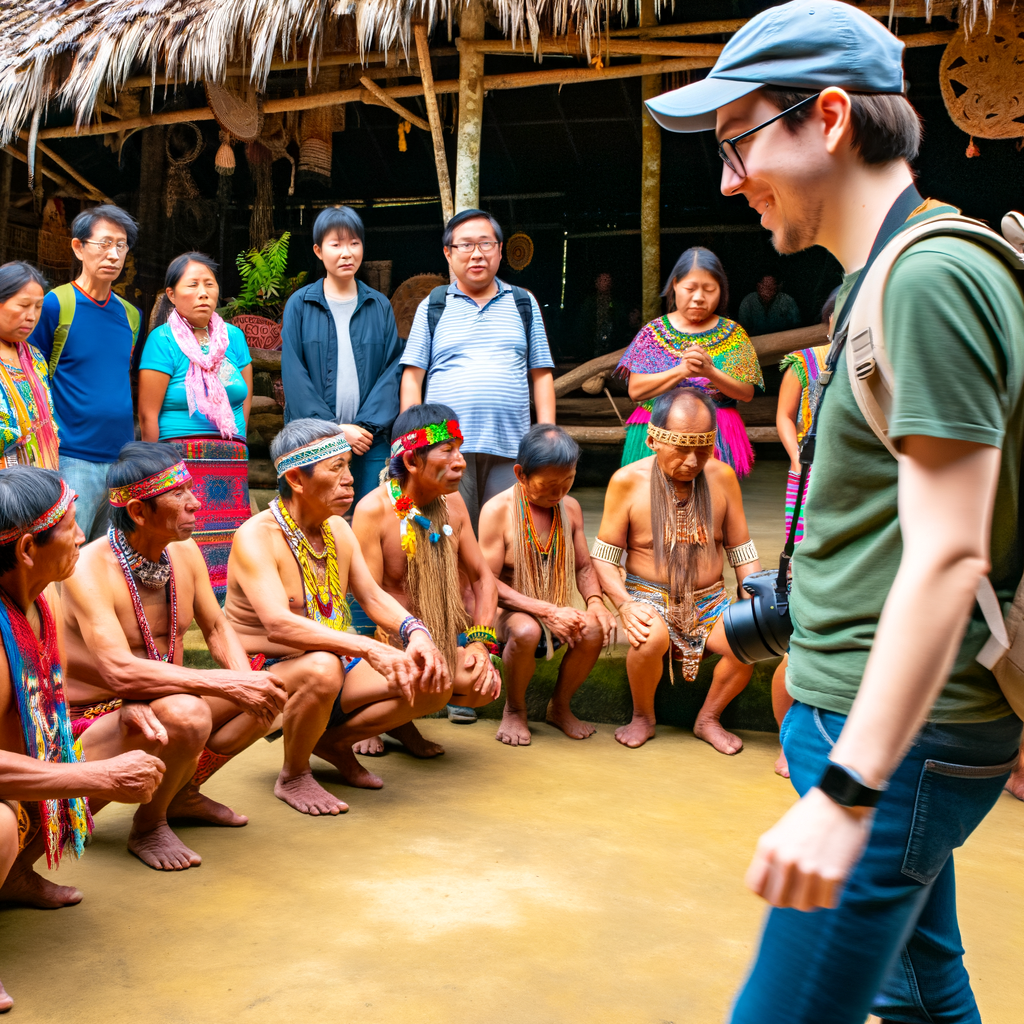In the heart of lush forests and expansive plains lie the rich and vibrant Indigenous communities that have thrived for centuries, preserving ancient traditions and cultural heritage. When embarking on a journey to visit these remarkable communities, it is essential to approach with humility and respect, honoring their customs and way of life. By embracing respectful travel practices, we can foster meaningful connections and forge lasting friendships with the guardians of the land. Join us as we delve into the art of meeting Indigenous communities with gratitude and mindfulness.
Introduction: Understanding Indigenous Communities
When traveling to Indigenous communities, it is crucial to approach with a deep sense of respect and understanding. These communities have unique cultures, traditions, and histories that deserve to be honored and celebrated. By taking the time to learn about the customs and protocols of the Indigenous peoples you are visiting, you can ensure that your interactions are respectful and meaningful.
One key aspect of respectful travel practices is to recognize and acknowledge the sovereignty of Indigenous communities. It is important to understand that Indigenous peoples have their own governments, laws, and ways of life that have been in place for centuries. By respecting their sovereignty and autonomy, you are demonstrating your commitment to honoring their rights and self-determination.
Another important consideration when visiting Indigenous communities is to support local businesses and artisans. By purchasing goods and services from Indigenous-owned businesses, you are contributing directly to the economic well-being of the community. This helps to empower Indigenous entrepreneurs and preserve traditional crafts and skills.
Appreciating Cultural Sensitivities
When traveling to meet indigenous communities, it is essential to approach the experience with a deep sense of respect and understanding for their cultural sensitivities. By honoring their traditions and customs, you can foster meaningful connections and meaningful interactions during your visit. Here are some respectful travel practices to keep in mind:
- Research Before You Go: Take the time to learn about the history, beliefs, and customs of the indigenous community you plan to visit. This shows that you value their culture and are committed to approaching the experience with sensitivity.
- Ask for Permission: Before taking photos or participating in any activities within the community, always ask for permission. Respect their privacy and boundaries at all times.
- Listen and Learn: Engage in meaningful conversations with community members and listen to their stories. By showing genuine interest and respect for their perspectives, you can deepen your understanding of their culture.
- Support Local Initiatives: If you have the opportunity, support local businesses and initiatives within the community. This can help empower indigenous individuals and preserve their cultural traditions.
| Do: | Respect cultural practices and traditions |
| Don’t: | Disrespect sacred sites or rituals |
Supporting Sustainable Tourism Initiatives
When visiting indigenous communities as part of your travels, it is crucial to approach the experience with respect and mindfulness. These communities often have unique customs, traditions, and ways of life that should be honored and appreciated. By practicing respectful travel practices, you can support sustainable tourism initiatives and contribute positively to the preservation of indigenous cultures.
One way to show respect when meeting indigenous communities is to educate yourself about their history, beliefs, and customs before your visit. This allows you to approach the experience with an open mind and a deeper understanding of the community you are interacting with. Additionally, being mindful of your actions and behavior while in the community is essential. Remember to always ask for permission before taking photos, participating in cultural activities, or entering sacred spaces.
Engaging with local guides and community members can also enhance your experience and show your support for sustainable tourism. By hiring indigenous guides or purchasing goods directly from local artisans, you are contributing to the economic empowerment of the community. This not only helps to preserve traditional skills and knowledge but also provides sustainable income opportunities for community members.
Respecting Traditions and Customs
When traveling to indigenous communities, it is important to approach the experience with a mindset of cultural respect and understanding. One of the first steps in being a respectful traveler is to educate yourself on the traditions and customs of the community you are visiting. Take the time to learn about their history, beliefs, and practices before arriving.
Once you are in the community, it is crucial to be mindful of your actions and how they may impact the local people and their way of life. Remember that you are a guest in their home, and it is essential to show respect for their customs and traditions. This can include following any specific rules or guidelines set by the community, such as dress codes or participation in ceremonies.
When interacting with members of the community, always approach them with humility and an open mind. Listen attentively to their stories and experiences, and ask questions respectfully. Be willing to learn from the people you meet, and consider how you can support their community in a way that is beneficial and respectful.
As we conclude our exploration of meeting indigenous communities and the importance of practicing respectful travel habits, it is crucial to remember that these encounters offer a unique opportunity for cross-cultural exchange and learning. By approaching these interactions with an open mind, a spirit of humility, and a deep respect for the customs and traditions of indigenous peoples, we can foster meaningful connections and promote mutual understanding. Let us carry these principles with us as we continue to explore the world around us, always striving to be mindful and respectful travelers. Thank you for joining us on this journey of discovery and reflection. Until next time, happy and respectful travels.
